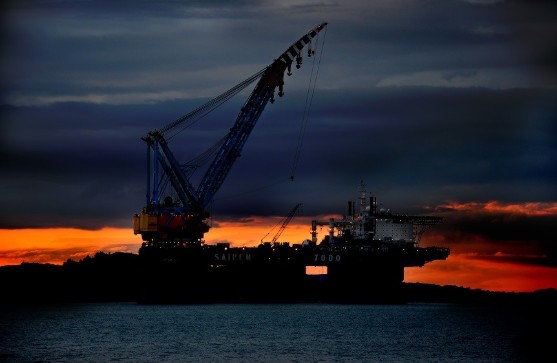
The Geopolitics of Energy and Climate
“I’m often asked do I believe in climate change, and I say no, I’m convinced by the evidence.” Rear Admiral David Titley was among a handful of individuals to testify before a Senate Foreign Relations subcommittee on the geopolitics of energy and climate change. In questioning, Titley admitted that he was initially a climate change skeptic, before becoming convinced by his experience as a naval navigator. “Back then we didn’t have GPS so I had to use a sextant and look at all the data available, not relying on any one piece of data, to steer the ship effectively.” Titley recalled similarly stitching together various pieces of evidence like melting glaciers, rising air and sea temperatures, and shifting ecosystems to arrive at the conclusion that climate change is real and that we are causing it.
Chaired by Senator Edward Markey, the hearing in the subcommittee on International Development and Foreign Assistance, Economic Affairs, International Environmental Protection, and Peace Corps underlined the importance of energy and climate policy in geopolitics and diplomacy. Markey’s opening statement cited Ukraine’s reliance on Russia for natural gas as a perfect example of the vulnerability created by a lack of energy diversification.
The Department of Defense (DoD) understands this risk, and in recent years has implemented biofuels as drop-in replacements for traditional petroleum fuels, thereby reducing greenhouse gas emissions. The DoD has also begun assessing the security implications of climate change, discussed in detail in Dr. Daniel Chiu’s testimony as Deputy Assistant Secretary of Defense for Strategy and Force Development. In some cases climate change is already making an impact on military installations, where increased flooding from sea level rise and storm surge have cost the DoD millions of dollars in damage. Even in places like Fort Irwin, 200 miles away from the coast, climate change is wreaking havoc. In August 2013, flash floods caused by an extreme rain event resulted in $64 million in damage.
Michael Breen, Executive Director of the Truman National Security Project, pointed out that U.S. oil production will likely plateau in the 2020’s before steadily declining after 2035. This decreasing oil output necessitates that the U.S. diversify its sources of energy, preferably through renewable energy, and decrease its overall energy usage through increased energy efficiency. Breen was quick to praise the Department of Defense (DoD) for pioneering efforts in both dimensions, stating the rest of the government would do well to follow a similar approach.
In the Arctic, where climate change is occurring faster than anywhere else, Chiu called for international cooperation in maintaining an area free from security concerns where natural resources and commercial activities can proceed unabated. Though future developments in the Arctic and climate change in general may be difficult to predict, the military “doesn’t wait for 100% certainty to tackle any issue,” as Titley put it. The lessons from the military to Congress are that managing risk entails working with uncertainty. The military is good at that, politicians have some work to do.







[…] “I’m often asked do I believe in climate change, and I say no, I’m convinced by the evidence” – Rear Admiral David Titley (The Geopolitics of #Energy and #climate http://t.co/0pD1IKWXSG via @amsecproject)… […]
[…] The Geopolitics of Energy and Climate […]